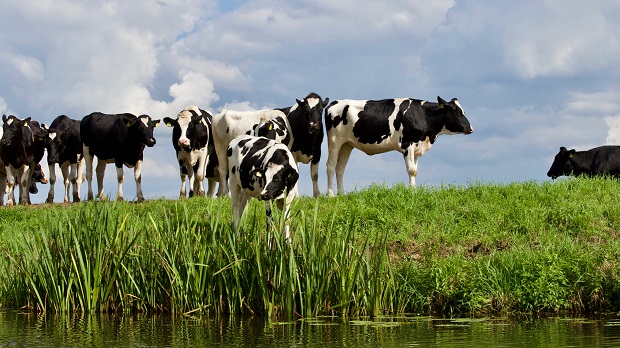People can act today to immediately reduce the carbon emissions of the foods they eat by choosing plant-based options that cause less methane emissions, for example using plant-based spreads instead of diary butter saves 70% carbon emissions[1].
 Following this week’s landmark decision at COP26 to reduce methane emissions by 30%, it’s important to look at the causes of methane emissions. Minimal detail was given on reducing methane coming from the food sector, although 44% of human-caused methane emissions globally are from livestock.[2] Therefore, it’s vital we understand what we put on our plate and how our shopping decisions can impact the planet.
Following this week’s landmark decision at COP26 to reduce methane emissions by 30%, it’s important to look at the causes of methane emissions. Minimal detail was given on reducing methane coming from the food sector, although 44% of human-caused methane emissions globally are from livestock.[2] Therefore, it’s vital we understand what we put on our plate and how our shopping decisions can impact the planet.
When looking at different foods; dairy, meat, and eggs account for 83% of Greenhouse Gas emissions from the average EU diet[3]. Whereas only 17% results from plant-based foods[4].
Upfield, the number one producer of plant-based margarines, cheeses, creams, butters and spreads around the world including well-known brands Violife and Flora, is showing people how to reduce their methane footprints.
The easiest changes people can make to drive carbon reductions is by using plant-based alternatives to dairy butter on their toast or vegan cheese on their pizza which is far better for the environment than their dairy counterparts.
A study found that for each kilogram of product, the ‘mean average’ CO2 equivalent for plant-based spreads was 3.3kg, compared to a staggering 12.1kg for dairy-based products – an increase of three times[5]. This is down to the potent methane emissions produced by cattle in the manufacture of dairy butter, through “enteric emissions”.
Carbon dioxide regularly gets bad publicity, however; methane is about 80 times more powerful than its greenhouse gas partner when it comes to trapping heat and is responsible for 25% of current global warming from human action[6].
The dairy industry is one of the biggest offenders when looking at methane production. Making butter is three-and-a-half times more carbon intensive as well as being land and water intensive compared to the manufacture of plant-based spreads, according to Upfield’s study[7].
Sally Smith, Global Director of Sustainability at Upfield, said: “It’s a big step forward to see the issue of methane being raised and addressed at COP26. Methane is a big contributor when it comes to global warming, so it is important to try and reduce the amount we emit as a global population. This means looking at all sources of methane, including livestock.
To achieve emissions targets designed to limit global warming to 1.5° by 2050, there needs to be a fundamental transformation of our food system. In Western countries especially, we currently rely too heavily on meat and dairy.
At Upfield, it is our responsibility to understand and act to address the impact of our plant-based products on the environment. We are focussed on tackling our own footprint, however as a food industry we have a clear opportunity to drive more rapid systemic change by helping people to choose diets that reduces our intake of meat and dairy.”
Damian Guha, General Manager UK&I at Upfield, said: “The COP26 methane announcement is a step in the right direction. Cutting emissions at pace will help reduce the speed at which our planet’s temperature is rising, but it is by no means the ultimate solution. We need to act now. It is on all of us to make changes to diets that will result in reduced methane and carbon emissions. We need the backing of national governments to take food system emissions seriously, and support consumers in making sustainable dietary choices.
At Upfield we are committed to A Better Plant-Based Future. Our recently published ESG report outlines all the ways in which we are committed to transition to a more sustainable food system that relies on more and more people adopting a plant-based diet.”




Comments are closed.